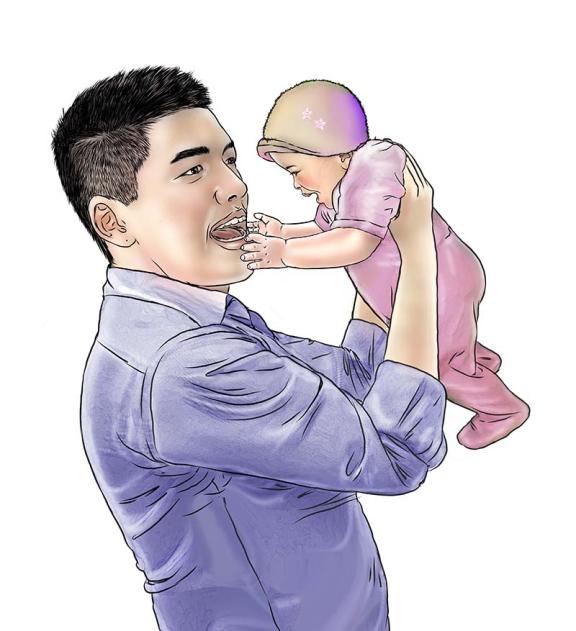
Для перевода этой страницы нажмите на белую кнопку в правом верхнем углу страницы, где указан "English", и выберите "Russian."
The RCEL Addendum package includes: a Planning, Adaptation, and Implementation Guide; a Training Package; and Counseling Cards. These materials are required for any program interested in using and adapting the RCEL Addendum to their context. Additionally, there are optional videos included below that programs can use during the training if they have the technology/capabilities to do so. For more information and to download each of the components of the RCEL Addendum package, see below.
Planning, Adaptation, and Implementation Guide
This guide is the place to start when using or adapting the RCEL Addendum package. It provides an overview of the RCEL Addendum, how to plan for the integration of the RCEL Addendum into existing programs and processes, important considerations when adapting it to different contexts and tools to support this (including translation guides for key terminology), and guidance to prepare for implementation (including developing a monitoring and evaluation plan).
Download the Planning, Adaptation, and Implementation Guide (Russian, DOCX, 10,06 MB)
Training Package
The RCEL Addendum Training Package includes a Facilitator’s Guide, a Training Aid, and Participant Handouts required to train facilitators, community-level counselors, and health providers. These materials are provided in an editable format so they can be easily adapted to different contexts, which is explained in detail in the Planning, Adaptation, and Implementation Guide.
Download the Facilitator’s Guide (Russian, DOCX, 2.36 MB)
Download the Training Aid (Russian, DOCX, 13.86 MB)
Download the Participant Handouts (Russian, DOCX, 6.2 MB)
Counseling Cards
The RCEL Addendum Counseling Cards are the primary tool from this package that counselors use in their daily work. The cards consist of illustrations representing a Central Asian context. They are provided in several formats so they can be easily adapted to different contexts, which is explained in detail in the Planning, Adaptation, and Implementation Guide. Programs that choose to not make any adaptations may wish to use the PDF version of the cards. Programs that are adapting the cards to a different context can use either the Word version of the cards or the InDesign package to do this. To adapt the illustrations, download them in TIFF format from the IYCF Image Bank and use Photoshop to make required adaptations. Adaptations should be completed with adequate support from someone knowledgeable in Photoshop, Word, and/or InDesign.
Download Counseling Cards in PDF (Russian, PDF, 22.52 MB)
Download Counseling Cards in InDesign for Adaptation (Russian, INDD, 80.23 MB)
Download Counseling Cards in Word for Adaptation (Russian, DOCX, 8.21 MB)
Responsive Care and Early Learning Videos
These videos, captured in community settings in the Kyrgyz Republic, show:
- Real interactions between caregivers and their newborns and young children, and;
- Counseling sessions during a health facility consultation and a home visit.
The videos model responsive care behaviors as they unfold in everyday settings with a variety of caregivers. There are two sessions in the RCEL Addendum training that include the option to utilize videos as part of that session. To show the videos, facilitators should have access to a laptop with audio and a projector. See the RCEL Addendum Facilitator's Guide for more information about using the videos during the training.
Caregiver-Child Interactions Kyrgyz Republic (Взаимодействия ухаживающего лица и ребенка – Кыргызская Республика)
This video shows natural interactions between children and caregivers in the Kyrgyz Republic and does not contain narration. It is intended for observing several different types of interactions between young children of various ages and their caregivers.
Download the Transcript (Russian, DOCX, 82 KB)
Caregiver-Child Interactions with Narration Kyrgyz Republic (Взаимодействия ухаживающего лица и ребенка (с текстом) – Кыргызская Республика)
This video presents the scenarios from the “Caregiver-Child Interactions Kyrgyz Republic” videos but with audio narration that highlights the child’s cues and caregiver responses in each interaction.
Download the Transcript (Russian, DOCX, 82 KB)
How to Observe Caregiver-Child Interactions Kyrgyz Republic (Наблюдение за взаимодействием ухаживающего лица и ребенка – Кыргызская Республика)
This video shows selected scenarios from the “Caregiver-Child Interactions Kyrgyz Republic” videos with a pause-and-reflect or question-and-explanation format to enable viewers to observe and reflect on the interactions.
Download the Transcript (Russian, DOCX, 83 KB)
Counseling Caregivers at a Home Visit: A 5-Step Approach Kyrgyz Republic (Консультация ухаживающих лиц при посещении на дому: Пятишаговый подход - Кыргызская Республика)
This video demonstrates an individual counseling home visit in which the counselor is discussing responsive care and early learning topics with a caregiver. This video uses narration to explain what is taking place during the counseling visit.
Download the Transcript (Russian, DOCX, 87 KB)
Universal Baby Cues (Основные сигналы младенцев)
This video focuses on common cues that infants and young children at different ages use to communicate how they feel and what they need. This video displays how these cues are universal across different peoples and cultures. Scenarios depicting caregivers and children from both Ghana and the Kyrgyz Republic are included.
Download the Transcript (Russian, DOCX, 88 KB)